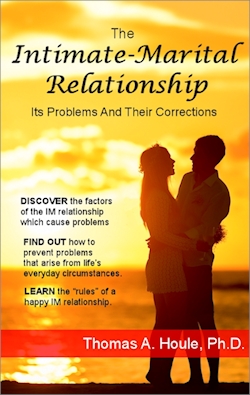
In one form or another, power is present at all times, in all relationships
The power element refers to the authority each person has in the IM relationship, most often reflected in who makes the decisions. Power, when used properly, provides the couple in the IM relationship with support through feeling secure in knowing that the decision-making process will be beneficial to both parties.
Knowing how power operates in an IM relationship requires an understanding of why and how it is used.
The power element and its components
The components of the IM relationship power element are the types of power—specifically, legitimate, expert, and attractive power—and the uses of power, which include positive and negative use.
The types of power
For now, let's take a brief look at just one power type.
Attractive power is so named because it has the power to attract. A person attractive power has it because his or her character makeup, interpersonal skills, or attributes make him or her likeable and attractive.
When people first enter into an intimate relationship, they are attracted to each other. They like each other. Because couples like each other, they are influenced by each other. In the more satisfying and successful intimate relationships, attractive power is the major source of influence one person has over the other.
The uses of power
The positive use of power involves doing pleasurable things to and for others, such as being helpful, polite, and complimentary or giving tangible things to others. Not only does it make us feel good to do such things, but it also makes people more accepting of us, thus resulting in our having control over the other person.
We see the negative use of power in argumentation, confrontation, criticism, disagreement, disapproval, and general negativism. While this approach may seem negative to the person on the receiving end, its appeal to the user of such power is positive; it gets the person what he or she wants—a response from the person upon whom negative control is being used.
This response usually comes in the form of attention. Attention is not only a reward, but also a measure of how much control a person has. This response signals, to the person being unpleasant, that he or she is in control. He or she is proactive, and the target person is reactive. As a result, the situation is under the direction of the negative controller.
The short-term effect of the negative use of power is immediate; the long-term effect of its use is harmful. Chronic users of negative control alienate others, causing the negative controller to be disliked and avoided. This in turn results in the loss of the supportive relationships that the negative controller desperately needs.



